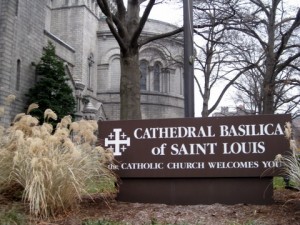The legal back-and-forth over the Vatican’s position on the sexual abuse revelations seems to Americans bizarre. While certainly the Catholic Church has a large contingent, we are a traditionally Protestant nation and after ditching the Anglican’s after the Revolution, the whole question of a Church being able to deny the right of civil authority to prosecute one of its representatives for criminal acts was swallowed up in the strident secularism that, despite the current revisionist rhetoric of a very loud activist minority, characterized the first century of the Republic. Even American Catholics may be a be fuzzy on how the Vatican can try to assert diplomatic immunity for the Pope in order to block prosecutorial efforts.
But the fact is, the Vatican is a State, just like Italy, Switzerland, Germany, or the United States. The Pope is the head of a political entity (technically, the Holy See, but for convenience I use the more inclusive term Vatican), with all the rights and privileges implied. The Vatican has embassies.
They have not quite come out to assert that priests, being officials (and perhaps officers) of that state, have diplomatic immunity, but they have certainly acted that way for the past few decades as this scandal has percolated through the halls of St. Peter. It would be an interesting test if they did, to in fact allow that attorneys generals, D.A.s, and other law enforcement agencies have absolutely no legal grounds on which to prosecute priests. To date, the Vatican has not gone there.
So what is the political relationship between, say, the Vatican and the United States?
From 1797 to 1870, the United States maintained consular relations with the Papal States. We maintained diplomatic relations with the Pope as head of the Papal States from 1848 to 1868, though not at the ambassadorial level.
With the loss of the Papal States in 1870, these relationships ended until 1984, although beginning in 1939 a number of presidents sent personal envoys to the Holy See for specific talks on various humanitarian issues.
Diplomatic relations resumed January 10, 1984. On March 7, 1984, the Senate confirmed William A. Wilson, who had served as President Reagan’s personal envoy from 1981, as the first U.S. ambassador to the Holy See. The Holy See in turn named Archbishop Pio Laghi as the first Apostolic Nuncio (equivalent to ambassador) of the Holy See to the U.S.
The Pope, as head of the governmental body—the Holy See—has the status of head of state. Arresting the Pope—even issuing a subpoena—is a problematic question under these circumstances, as he would technically enjoy immunity stemming from his position.
The question, however, more to the point is the overall relationship of the global Church to the Vatican and the prerogatives the Pope and the Holy See seem to believe they possess in the matter of criminal actions and prosecutions of individual priests, bishops, even archbishops.
That requires going back a long time.
At one time, the Holy Roman Church held secular power and controlled its own territories, known as the Papal States. When this “country” was established is the subject of academic study, but a clear marker is the so-called Donation of Pepin. The Duchy of Rome was threatened materially by invading Lombards, which the Frankish ruler Pepin the Short ended around 751 C.E.

